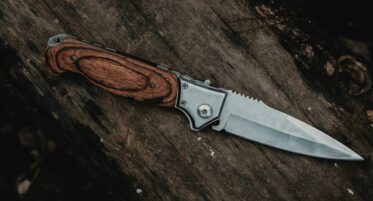
Prompt Images
Winnie hadn’t had a bite all morning. She cast her line again, sticking her rod in the holster that she and her brother had screwed onto the dock together. That was back when they couldn’t go a day without fighting. Bickering over who was in charge and whether that was fair, until words escalated into some activity worthy of punishment—cursing, punching, kicking, or crying.
Mom hated the crying, so they both stopped.
Peter was 8 when Winnie was 10, but he was born in September and she was born in August, so they were only one year apart in school. He was young for his grade and she was the oldest in hers. Who even cares. It’s irrelevant. The point is that Peter got leukemia that year.
And it’s fine because he’s fine, but that changed things. Winnie visited Peter in the hospital, brought him a coloring book, and gave him her space robot Lego set, with the transparent blue piece that served as the windshield for a rocket ship. It was still in the box because Mom said Winnie couldn’t open it until she stopped biting her nails. Winnie put the Lego box on the corner of the bed and told Peter they could build it together if he wanted, but instead, Peter just said thanks and then fell asleep.
Winnie never stopped biting her nails, and Peter getting cancer sure didn’t help the problem.
Not right then, but a lot of times after that, Winnie cried and Mom didn’t yell at her. She just stroked Winnie’s hair and said, “I know, honey, I know.” The feelings came on her in weird places—the ballpark, the supermarket, in the fitting room at Bradlee’s. Dad even cried one time, in the hallway, outside Peter’s room and didn’t know Winnie saw him. She had woken up to go to the bathroom, and before she even crossed the threshold, she heard someone’s short, erratic breaths. Maybe the gasps had woken her up in the first place.
She walked toward her open bedroom door using the quiet floorboards closest to the wall, where the carpet was taller and unworn. Poking her head out, she saw Dad with his hand and forehead on Peter’s door. She tiptoed back to her bed and held her pee till morning.
Winnie tried not to think about how many times she had made fun of Peter for wetting his bed. She pulled the covers over her face, trying to cover up her sadness, as if it would go out like a flame with not enough oxygen. As if she could stop, drop, and roll it away.
No one was even in Peter’s room at the time—he was in the hospital. Mom stayed with him that night and most nights while Dad made dinner from frozen boxes. Winnie never told anyone. When she woke up in the morning, her door was closed.
Winnie leaned back on her palms, pushed herself up, and walked toward the shed—a walk she’d done hundreds of times when the fish wouldn’t bite from the dock. She pulled out the rubber wader coveralls and dragged them to the water’s edge, leaving them next to the PRIVATE PROPERTY sign on the riverbed next to her house. She went back to the dock and reeled in the line, collected her tackle box, and walked back toward the waders.
She sat on the coarse sand, putting different hooks and tools into the coverall’s pockets, then slid her legs in one at a time and pulled the straps onto her shoulders. Peter must have been the last to wear them, she thought, tightening the straps by 7 inches on each side.
After that year of hospitals and parents crying and Winnie being pulled off the soccer team mid-season, there were still tons of appointments and pills to keep Peter healthy. He was on steroids to rebuild his immune system, which made him even hungrier than a regular 9 year-old.
Mom and Dad quietly worried over Peter, constantly looking him in the eyes to ask, “How you feeling, buddy? You feel strong today?” They’d pile up their mashed potatoes on his plate, give him extra dessert, and once a week they all went to Ruby Tuesday’s for the buffet. “Eat up, buddy, OK?” Winnie said to Peter, wanting to be part of the spirit team.
Peter ate until he got chubby. Then he had a growth spurt that left Winnie in the dust, gotten him a starting spot on the football team, and made him the top tight end prospect in the state.
“You’re growing like a weed!” Mom told him. No one had ever seen Mom that happy. The months after Peter’s blood work came back clean, their parents hugged them for no reason. They stayed up late playing Trivial Pursuit. As a family, they fell asleep on the couch together, a pile of legs and arms and dragon breath. Mom made pancakes every Saturday and Dad brought donuts home every Sunday after he went to church alone. In a weird way, those were the best months.
Winnie took three steps into the river, which was brown and clear at the same time, like weak iced tea. With her foot, she felt for the log that she tripped over, spraining her ankle the day of homecoming her senior year. She navigated her legs—cased in the wide, thick rubber—over the log and continued walking deeper and deeper until the water reached as high as her belly button.
It hadn’t rained in weeks, but if it had, the current at this depth might have been enough to carry her away. But today it was still, as if waiting for something better to happen.
She flicked her wrist and cast her line 15 yards, where it plunked into the still water and sank to the bottom. Winnie waited, her feet settling into the sandy mud beneath her. The rubber coveralls kept out the wetness but not the feeling of cold water, of floating, of being made of water, surrounded on all sides by water. Of being one with this body, this water, this body of water.
It might have been a nibble or it might have been nothing, but Winnie didn’t pull in her line. She let it sit there—she was always the patient one—knowing exactly what it felt like when a fish latched. No matter what tales Dad told, Winnie was the best fisherman in the family.
She stood quietly, barely moving, except to occasionally twist her wrist ever so slightly to show some life on the other end of her line. Whether 30 minutes or three hours later, she couldn’t say, she felt the unmistakable bite and panicked thrashing of a predator expecting a meal rather than becoming one.
What a cruel twist of fate.
Winnie let the fish take the line until she knew it was good and hooked, then jerked back her pole and began cranking her wrist like a chef whisking egg whites into stiff peaks. She didn’t cuss or hoot like the others who fish in this river, signaling their bravado and dominance over an animal millions of years less evolved. She had already won.
The fish fought the whole way in, like they always do. When it was close enough for her to reach, she picked it up with her left hand and pulled the hook free from the fish, or the fish free from the hook, depending whose side you’re on. She gave it a once over—a healthy trout, probably about 16 inches long—and then put it right back in the river and re-cast her line in the opposite direction.
Winnie hadn’t told anybody about her diagnosis. Peter and his wife had just had their first baby—8 weeks premature—and she didn’t want to worry them when they already had so much on their plate. Then Dad threw out his back working on the shed; he needed surgery. And with Mom tending to Dad and Peter, Winnie didn’t need to be the center of attention.
And so it felt strange to speak up now, finally, after hearing the doctors say the word “remission.” After her tests came back with good news, it felt rude to throw a party to which no one had been invited in the first place.
But she couldn’t help but drive to Peter’s house after she heard the good news. “I was in the neighborhood and thought I’d just stop by to say hi,” she said. She hugged Peter for no reason. Then she went to Mom and Dad’s to help with some chores. They played Trivial Pursuit, then she fell asleep on their couch.
This morning, she woke up and found her way to the fishing dock before anyone stirred. In a weird way, those were the best moments. So she waited and waded, longer and deeper, knowing that it’s not just the bad things; it’s also the good things that bite.



